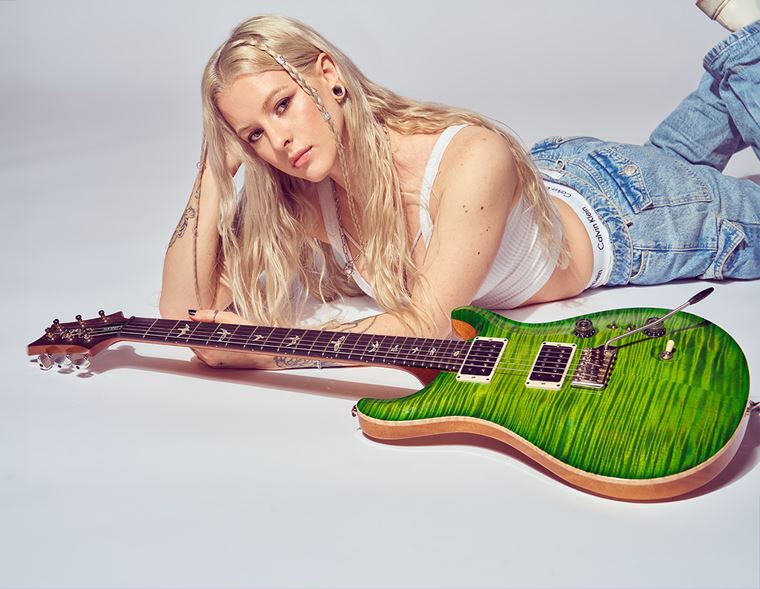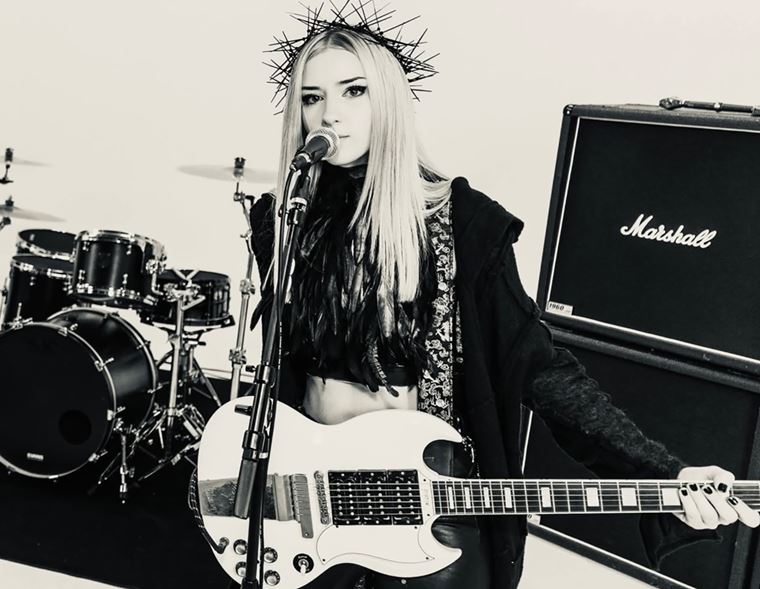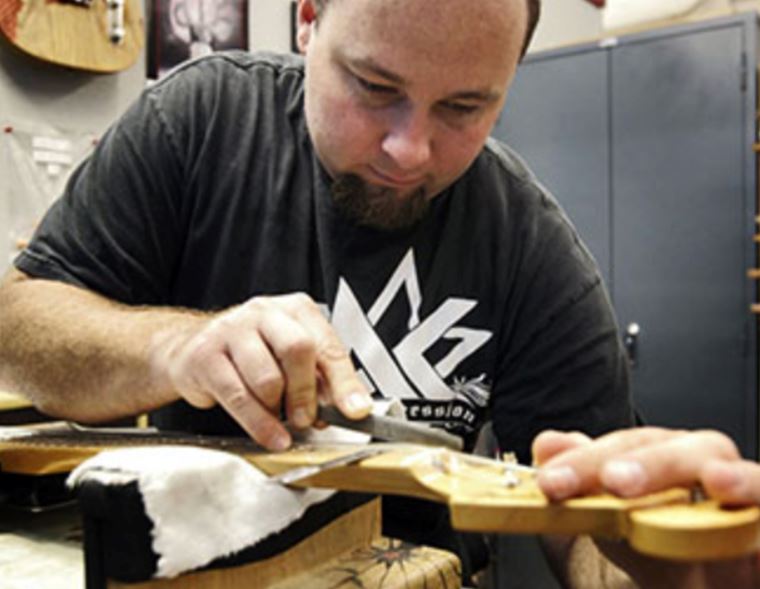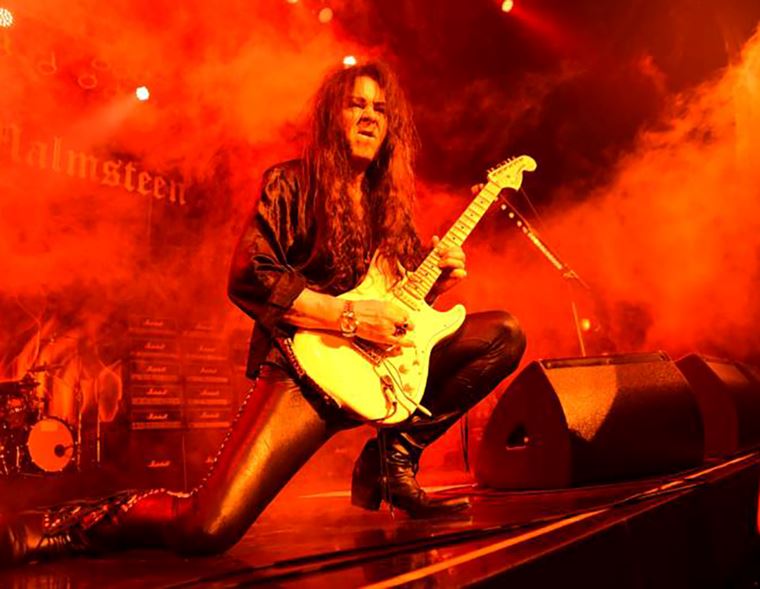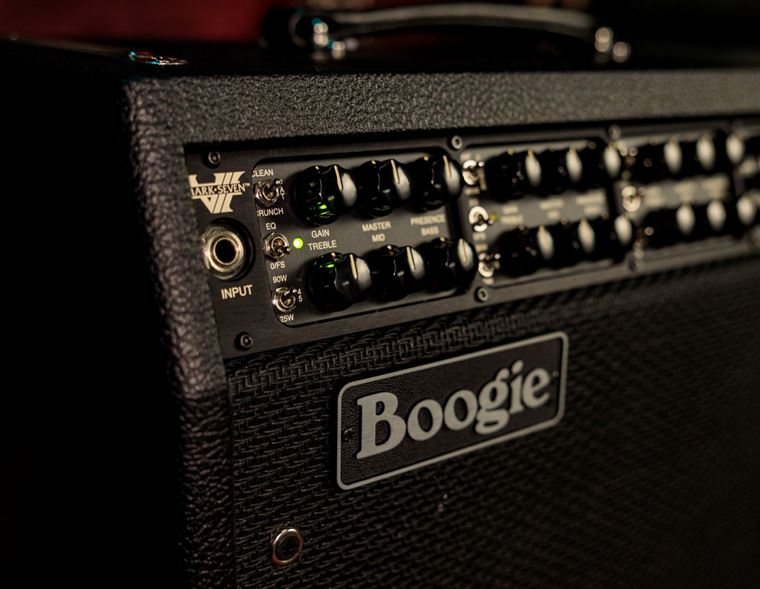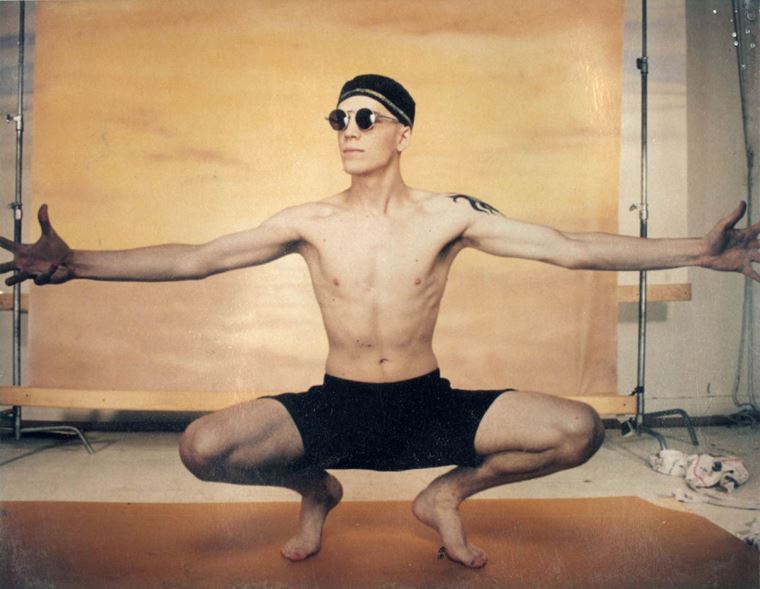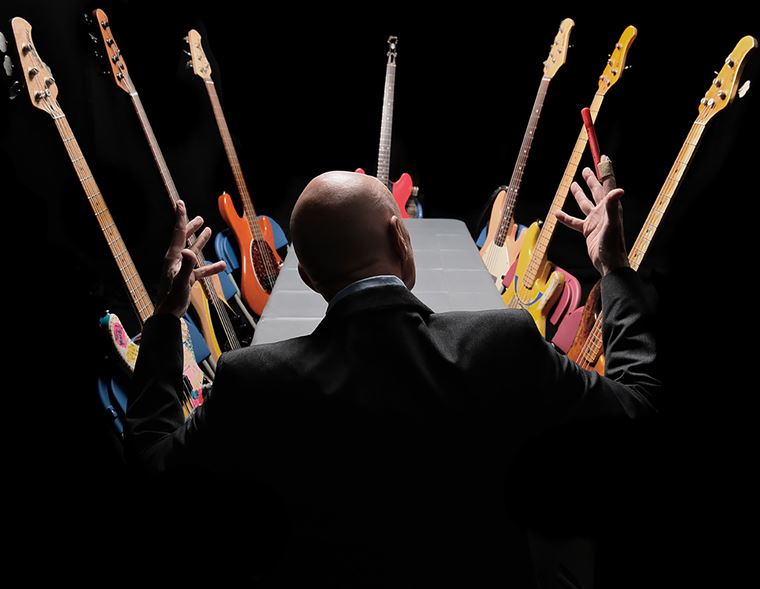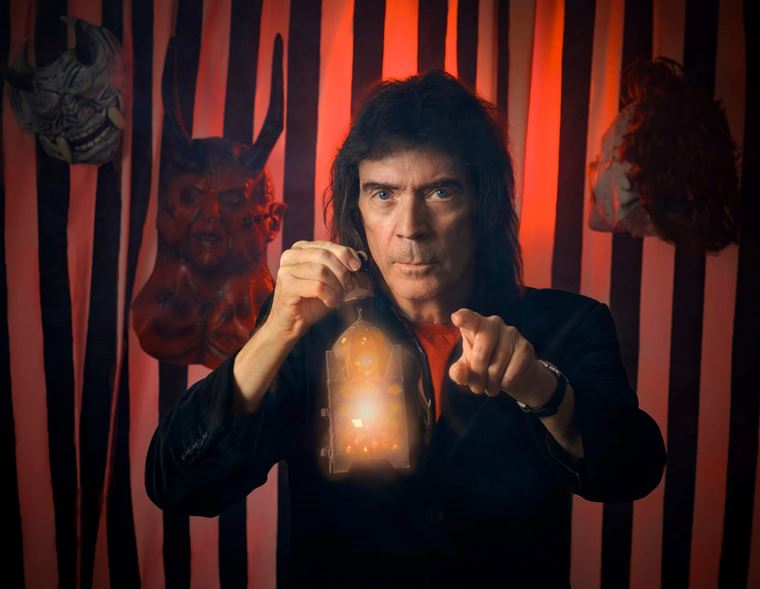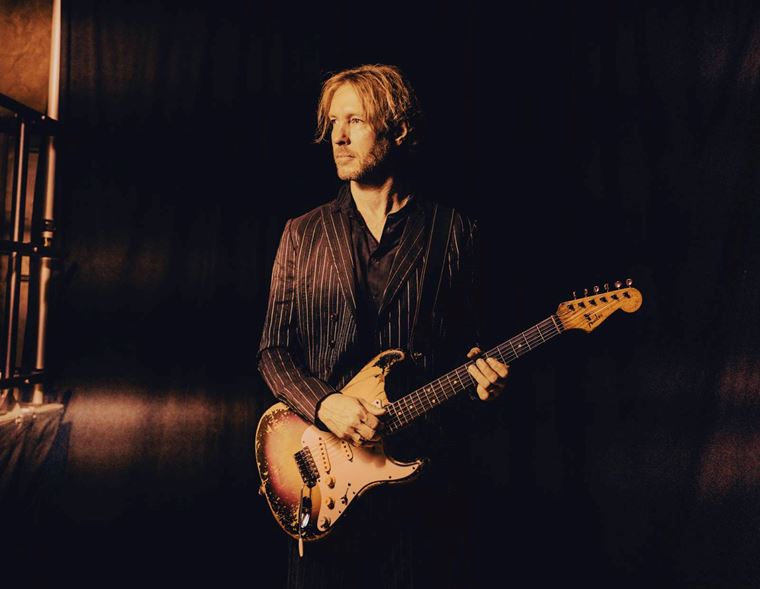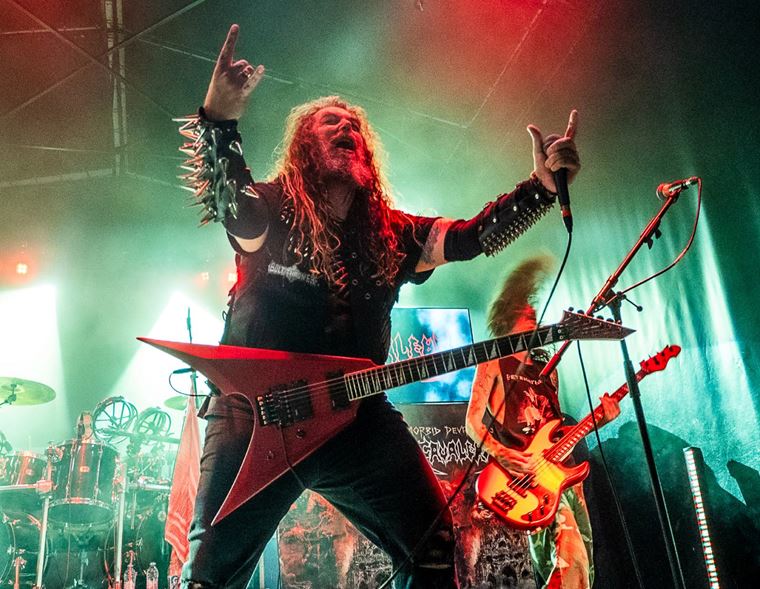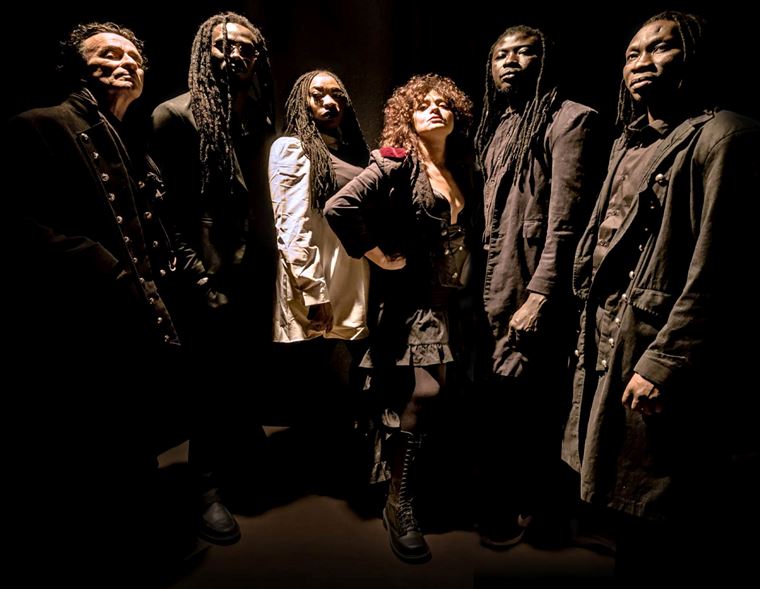MORGAN WADE on sobriety, finding a voice and being Reckless
Published on 26 February 2021
The first thing you notice is the voice.
On record, it’s an expressive, multi-coloured thing, full of passion, beauty, grit and regret, singing songs with lyrics that are disarmingly direct. The production of the songs is wonderfully appropriate, but that voice sits above it all.
26-year-old Morgan Wade is the owner of this voice, and in conversation, the Virginia native has one of those all-time classic Southern American accents: steeped in mythology & authenticity, and a real pleasure to hear. If you’re singing heartbroken songs of love, despair and hope, this is the kind of voice to do it with!
Morgan chatted to us recently in preparation for the release of her debut album, Reckless. A mix of pop and rock songs, all co-written by Wade, Reckless has an undeniable charm and Countrified appeal that should guarantee success. Speaking to Morgan, we learn the story of the album’s creation, her courageous move away from alcohol and the particular appeal of classic Gibson acoustic guitars...
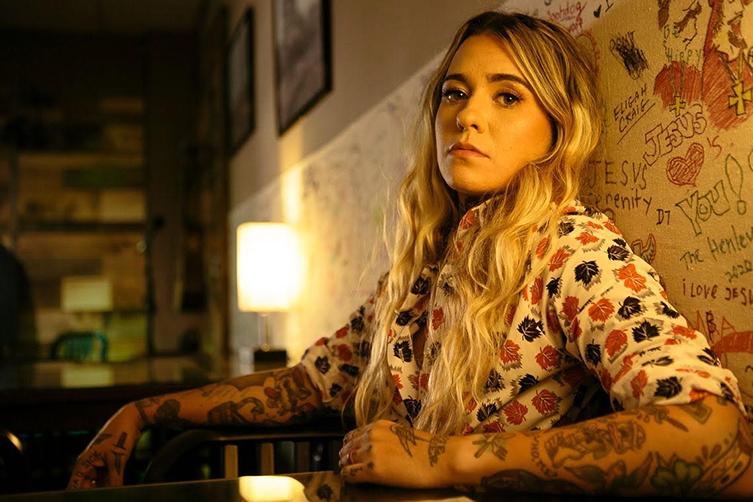
(Photo: David McClister)
Morgan Wade Interview
guitarguitar: So, thank you for agreeing to talk to me today!
Morgan Wade: Yeah, thanks for having me, man!
GG: No problem! So, Reckless is your debut solo album and its out next month. How do you feel about that?
MW: Yeah, I’m ready! I’m ready for it. It was literally a year last week then we finished recording it, so yeah, I’ve been sitting on it for a while!
GG: Oh wow, I didn’t realise! So you just finished it before the first of the lockdowns happened?
MW: Yeah, literally a week before, something like that. Yeah.
GG: No way! Now, this is your solo debut, but am I right in saying that you’ve already done a previous record with your band, The Stepbrothers?
MW: Yeah, that was a couple of years ago. It was my first demo kinda thing. This is like the first official, professional record.
GG: Ok, cool. So Reckless has been ready for a year! I was just gonna ask you about your songwriting process. That kinda dovetails into what you’ve presumably been up to in this year since the album got finished! What, then, is your typical process for writing a song?
MW: Honestly, I’m not like somebody who sits down every day and goes, ‘Alright, I’m gonna try and write something’. It either comes to me or it doesn’t. I write a lot of stuff just riding down the road in my car, just in my head. Stuff like that, versus just getting a pen and paper out and sitting down to jot stuff down. Since the pandemic started, I’ve started working with Universal publishing in Nashville, and so I have been writing with songwriters that way, but I always have an idea before I come to the table with anything. For me, it either comes or it doesn’t. I can come up with something, but that doesn’t mean it’s gonna be any good! (laughs) But since the record, I have been writing tracks, instrumental tracks, and I’ve been enjoying that. You know, it’s already got the tempo, it’s already got the beat and I can just play that on my phone when I’m going down the road and write songs in my head.
GG: Right, got you! So, quite often you’ll have some sort of bed of music that you can work to. Then is it like, if something comes, you can then record that into your phone?
MW: I just repeat it over and over in my head until I remember it! I hate to write stuff down, so it’s like, going into the studio to record all this stuff, I had to type out all of the lyrics while I was in there. They were like, ‘You should’ve written this down already!’ (laughs) and I’m like, ‘I don’t write anything down!’ I’ve always been somebody who just...I can’t remember anything else, but I can remember my songs!
GG: Well, you know, if you’re only going to remember one thing, that’s probably a good thing to remember!
MW: It’s working well for me! So far, so good!
GG: So, does it typically begin with guitar chords and a rhythm for you? Or do you sometimes get a melody on its own first?
MW: Yeah, sometimes I’ll have a melody, and sometimes I’ll just have a lyric where I’m like, ‘I’m gonna use that’. Or, I’ll just play something on the guitar, it kinda just depends what mood I’m in.
GG: Yeah, fair enough! One of the things I noticed is that your lyrics are very direct and honest. Would you go along with that?
MW: Yeah, I mean, I’m very realistic and I dunno, I connect with music that’s super-blunt, super-honest. You know, not holding anything back, and like, that’s what I want: the realness. Yeah, so if that’s how you feel about it too then I’m doing my job how I wanna do it.
GG: Yeah, it’s very direct and specific. In a lot of ways, that’s what a lot of people go music for, to hear somebody else – especially with you becoming sober and stiff, that’s a tricky and courageous move for anybody to consider – and if you’re putting that also as part of the message of your music, people can use it. You don’t want to dress that up too much, do you? Directness is what’s useful.
MW: Right, yeah. For sure.
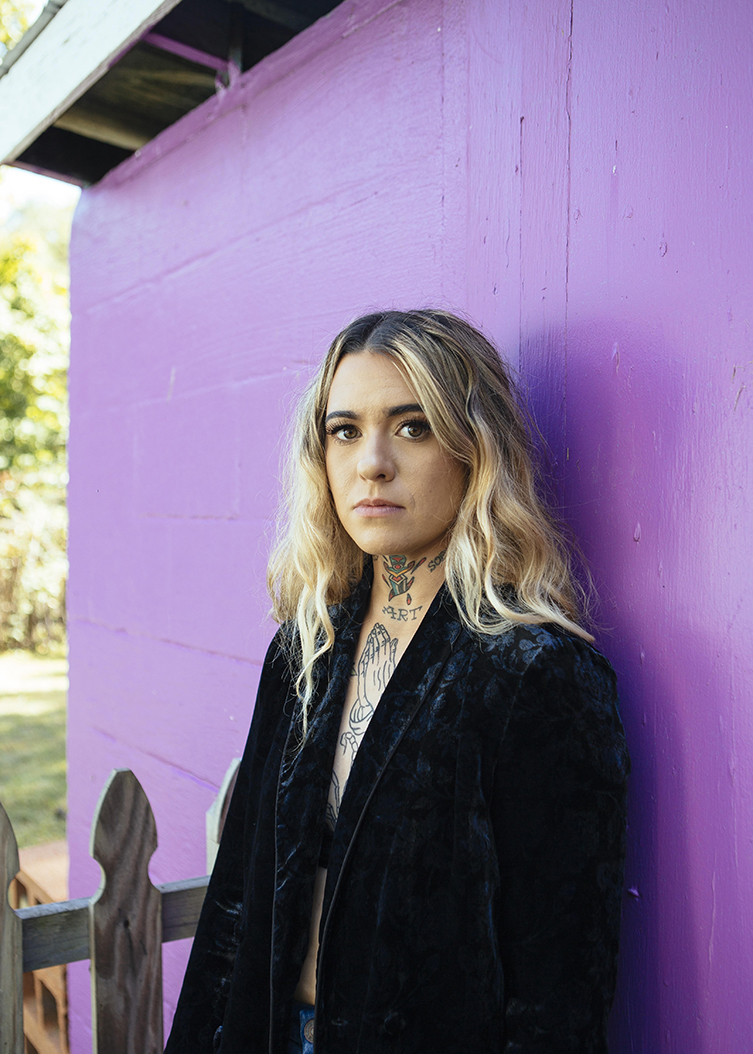
(Photo: David McClister)
GG: Did anything change with your creativity or performances after you got sober? Even smaller things, like how people often take a shot before a gig for some ‘Dutch Courage’: it’s a different thing when you can’t have that, isn’t it?
MW: You know, I was a little nervous about that at first but I feel like getting sober forced me to be real with myself and be present. And so, if anything, everything improved. You know, there’s times before shows where I’m like, ‘(makes frustrated noise) Morgan, you’re gonna be here, you’re gonna experience this, you’re gonna be able to be in the moment and not do something stupid. If you do something stupid, then it’s because you’re being stupid, not because of alcohol’, right? (laughs) It’s um, I think if I was still drinking, I wouldn’t be where I’m at now at all. I just don’t think I would be taking things seriously, and I don’t think I would be taken seriously, if I didn’t get sober. So, yeah, I think things have improved.
GG: Does that include your approach to things like rehearsals, writing, the business aspects of it...did you find that you could be more in charge than before?
MW: Yeah, yeah, I mean, the big thing about drinking was doing it to run from sitting with my emotions and stuff like that. I thought it gave me confidence, but it did not give me the kind of confidence I needed. Being with myself and just being like, ‘Alright, you get it. Let’s talk this out and, like, feel this’. You know, it’s made me a much more responsible person than I was, definitely.
GG: Yeah, and I suppose it also means that if you’re writing directly about emotional stuff that’s difficult, you get to be a little closer to those emotions as a writer. There isn’t that wall put up in front by the alcohol.
MW: Yeah, absolutely.
GG: Cool! So, in terms of singing, you have a very expressive and beautiful voice. Do you have to do any warmups and other things to look after your voice?
MW: No, when I was touring, I did make sure I drank a lot of tea, and I’d try to remember that on that first night of the tour, you’re excited and you gotta say, ‘Alright, you got several other days ahead of you, so don’t sing too hard, don’t be too crazy’. The older I get, the more I’m learning to control my voice versus just singing really hard. It’s knowing how to really control stuff, you know? Soothing those vocal cords! I found that miso soup is my go-to, that’s my excuse to go eat some Thai food or something like that. ‘I need some miso soup right now’. I probably baby it a little bit, you know, because it’s easier for me to say ‘I can’t talk right now, I’m gonna strain my vocal cords’, but that’s just being introverted. (laughs)
GG: Well, it’s a good excuse! You have a lot of range in your voice, and also there’s a really nice ‘edge’ to your tone. Is that just something that you naturally have?
MW: Yeah, it’s always been there. Growing up, I didn’t know that that was, like, a good thing to have! (laughs) I was just like, ‘what is wrong with your voice?’ I thought my vocal cords were broken or something! I sounded a little weird. I didn’t realise until I got older that the raspy-ness and stuff like that was a good thing! And learning to control it, you know, and not put too much of that out there.
GG: Yeah, totally. Now, I probably should’ve asked this one earlier, but the Reckless record was producer by Sadler Vaden. How was that experience of recording these tunes with him?
MW: It was great! Sadler and I met...it’s been 2 years we’ve been kinda working together, and you know, he pushed me, he’s like the first person I’ve ever co-written songs with, he got me out there in Nashville and into the scene there He introduced me to a lot of people, so he’s been like the biggest help. Sadler’s become like an older brother/mentor for me and, regardless of recording with him, it’s been everything about it: he’s a guy I can pick up the phone and be like, ‘hey, gimme some advice’, or whatever, and he’s just always there. So, it’s been a good process, recording, but making a great friendship too. It’s all been really good; I’ve got no complaints! (laughs)
GG: Brilliant! So you co-wrote with him. How does that work? Do you come in with an idea for a song, and he’ll maybe suggest changes? Is that how it kinda works?
MW: Yeah, for some songs I kinda already had, we’d go in and change things up, move stuff around. Other times he would come to me with some songs that he’d had the riff for or he would have the lyric idea and we would just sit down and go from there. So it was kinda all different: we’d both bring ideas to the table and just run with it.
GG: Yeah.
MW: But it always feels really natural to write with him.
GG: And that’ll probably get your best results, when you have someone you can just naturally spar off.
MW: Oh, absolutely. We don’t have to fish for anything. Sometimes we’ll write and it’s like, ‘Uh, this isn’t going anywhere. Lets’ take a break, sit on it for a while and come back’. That works best for us.
GG: Sounds great! So, the overall sound of your music, then. How would you describe it? Because it’s not straight-up Country, right? There’re other elements in there as well, aren’t there?
MW: Yeah, yeah, and that’s what I like. I think it definitely has some pop to it, some rock, um, Americana.
GG: Mm-hmm.
MW: Americana’s a good blanket to put there because what’s Americana? That can be, like, so many things! But I ‘m happier that it leans more on the rock and pop side for me, because that’s the kind of music that I’m really into. I’m just happy that is sounds how it does: it sounds exactly how I wanted it to, but it’s hard for me to classify: that’s like the biggest thing for me. I’ve come to the conclusion – Sadler told me - like, ‘We put the record out, we let people listen to it, they enjoy it and they can call it whatever genre they want’! It doesn’t matter as long as they’re happy with it, you know?
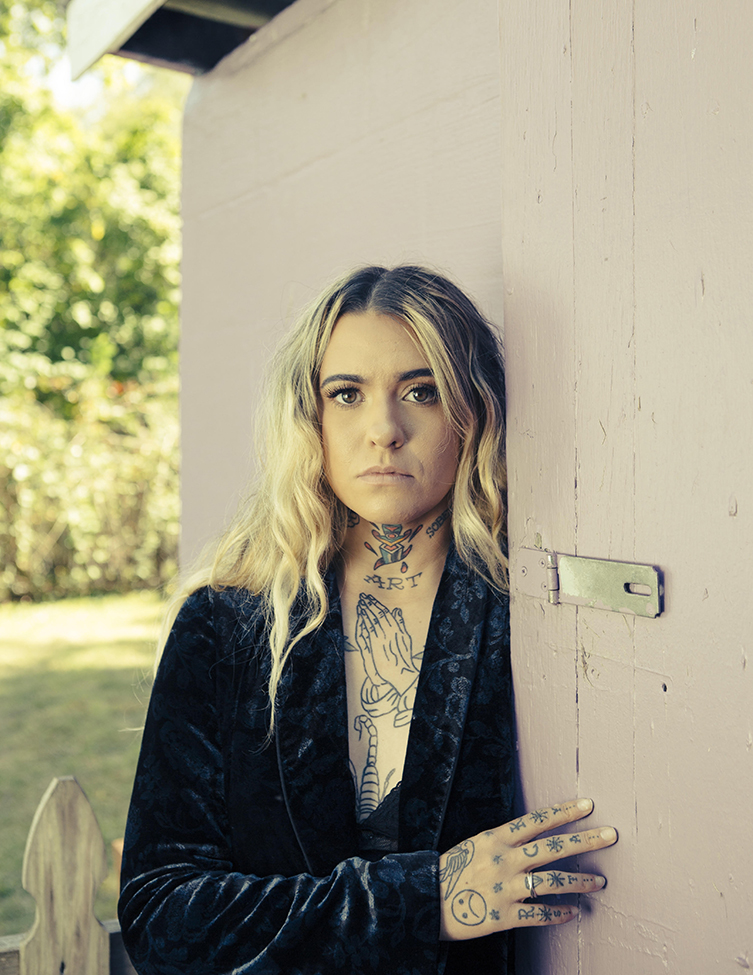
(Photo: David McClister)
GG: Yes, that’s a good attitude for sure. Is it Virginia that you’re from originally?
MW: Virginia, yeah.
GG: I was wondering about influences, like your favourite songwriters, but I also wonder – given that you mentioned Americana – does Virginia itself play a big influence in your writing? Like, the towns and the cities, where you grew up, that kind of thing?
MW: I’m sure it does! The area I grew up in was very big with Bluegrass music, a lot of Appalachian music going on, which I don’t play but I feel like the same mentality towards writing’s there. Growing up where there wasn’t a lot to do but drink and get into some kinda trouble, or something like that. (laughs) So, I think that does play a big role, but when it comes to my influences, it kinda changes from time to time. Right now, I’m digging listening to Miley Cyrus, I’ve always loved her and her new record’s great. You know, Lana Del Rey, Halsey. I’m taking from some different channels there, but as long as I can listen to people that inspire me to be a better writer, and be more honest because those three woman who I just name-dropped, they are suer-honest with their lyrics. They say what they wanna say and so that’s good for me to have those influences.
GG: Yeah, totally! They are have very strong, artistic voices for sure. Now, as this is for guitarguitar, let’s talk guitars a little! ‘ve seen you playing a lovely Gibson Hummingbird: is that your number one?
MW: Yeah, the Gibson Hummingbird and then my other go-to is the J-45, it’s a black reissue. I really dig that one, too. And I’ve got an SJ-200 that I take around and play. Just a little collection, here!
GG: Yeah, that’s not a bad collection! You’re very much a Gibson person, then. What is it you like about the Gibson vibe?
"Growing up, I was just like, ‘what is wrong with your voice?’ I thought my vocal cords were broken or something!"
MW: I’m definitely Gibson, I’m not into... I don’t play anything else. When I was a kid, I remember flipping through these magazines and seeing all these Gibsons. I was just drawn to them, like, ‘One day, I’m gonna have a Gibson’. I’ve met a couple of people over at Gibson, they’re super-nice folks. I’m just drawn to them, I’m not like tearing it up on riffs or anything like, that: I’m an acoustic guitar kinda girl. But, they always sound good. And they look good too, so!
GG: Oh yeah! Well, that’s the thing, you know? People listen with their eyes and if you’re out there performing, the J-200 and the Hummingbird are stunners to look at! You don’t really get better looking guitars than them, do you?
MW: No, you don’t. You don’t. Hahaha!
GG: Cool, so, just to tie things up, the album’s out next month. This would normally be the point where I’d say ‘So, you’ll be going on tour here and travelling there’ but that’s obviously not happening just right now! So what does happen now for you, after the album’s released?
MW: Yeah, well...we’re still booking some shows: obviously I haven’t played in literally a year, but we’re going to do some kind of socially distanced stuff, adhering to the guidelines and whatever to keep people safe, and slowly get back out there. I’m hoping with the vaccine, eventually by the end of the Spring, beginning of Summer, things can start getting back to...I would say ‘normal’, but what’s normal? I don’t know what that is any more. But just really still pushing it. It’s such a weird time, because this is my first big record and touring is the biggest thing. We can really do that right now, but I’m optimistic that by the Fall, we’ll be back out there playing.
Here’s hoping! Morgan’s debut, Reckless is released on March 19th on Thirty Tigers records.
We’d like to thank Morgan for her time, and her honesty with her answers. We’d also like to thank David Sullivan for setting us up!
Thank you for reading! We have many more interviews online, so please head over to our guitarguitar Interviews page for more!


